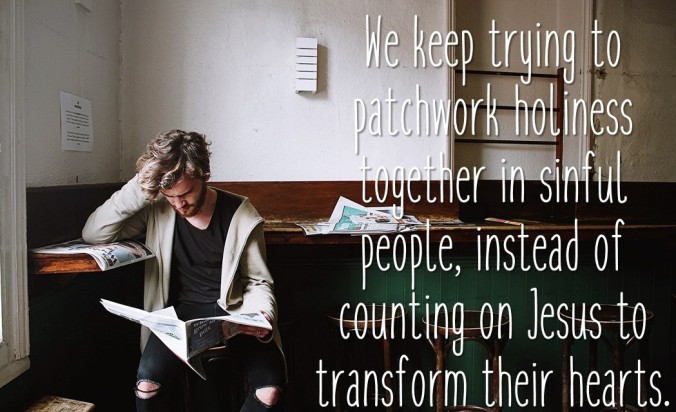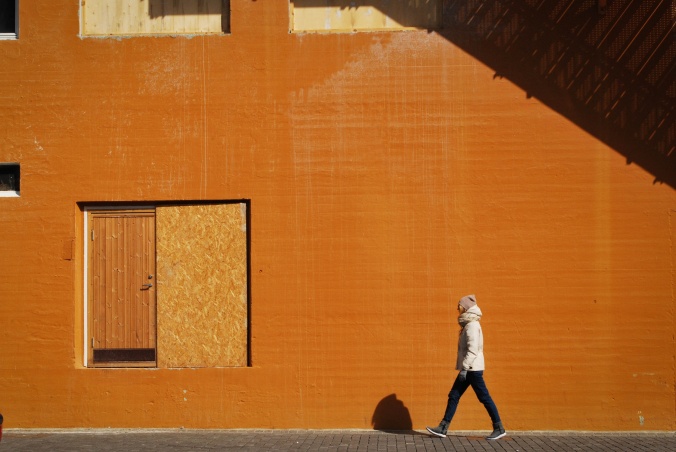
I’ve always been a little confused about what the phrase “evangelical” means, but never more so than during an election season.
It seems like every pollster and pundit has an idea about who is getting the “evangelical” vote, who is pandering to “evangelicals,” and who is more in touch with their “evangelical” base.
As a Christian deeply interested in politics, it’s always amusing and often confusing to listen to what the “evangelicals” are apparently saying and doing.
From transgender bathroom bills to the upcoming presidential election, there seems to be one reoccurring trend that Christians across denominational lines are embracing: panic.
Everything is lost, the apocalypse is upon us, and all our leaders are going to hell.
For the less extreme, it sounds more like this: crying “moral decay,” pronouncing God’s judgement upon a sinful nation, bemoaning the declining Christian influence in America.
But it all boils down to this: panic. We’re freaking out, and while our solutions are varied, our alarmism is not.
So what do we do with our mutual doomsday-prophesying?
We try to fix it all. We try and pass all the moral legislation we can sneak under the noses of our sinful leaders. We use every resource at our disposal to squash out the outwards signs of “moral decay.” We’re running around with a couple buckets, trying to stop leaks from every room of the house.
But here’s the truth: it isn’t working.
We know the God that gives life and we’re selling band-aids at the morgue.
We keep trying to patchwork holiness together in sinful people, instead of counting on Jesus to transform their hearts.
When are we going to wrap our heads around the fact that the world is going to act worldly?
No, everything is not getting worse. It’s always been sinful and broken and lost. There is nothing new under the sun, after all.
When we spend all our time criticizing the world for being the broken place we already know it to be, we forfeit the precious time we have to tell it about the one who can heal it, the one who is constantly in the beautiful process of redeeming it.
We are supposed to be about the work of bringing heaven to earth and being His hands and feet so His will can be done, but instead we’re bickering about which color to paint our rotting house. We can’t give it life, only He can.
Is this a reason to give up on politics? No. It’s a reason to pick our battles wisely.
I’m not saying there aren’t some battles worth fighting, I’m saying that maybe they aren’t even battles at all.
Maybe it’s time to lay down the weapons.
Jesus was all about bring change to His culture and questioning the power of the ruling government. But He did it in all of the weirdest ways. He hung out with the broken and the sinful, He didn’t wage a war against them. His model was one less glamorous than pundits arguing on TV and much less efficient than starting an online petition. He loved people and He gave them life. And then those people told other people. And they loved each other. Honestly, they hung out with each other. They kept loving and eating and talking and living together. And it happened over and over again for thousands of years. And it’s the only thing that has ever truly changed the world – people who love Jesus loving other people.
We keep telling a sinful world to stop sinning, but instead of telling them about the one who can free them from the bondage of their sin, we’re trying to ban as much of it as we can.
Am I advocating for a world with no laws against immoral behavior? (Nice try, I was a debater in college and I can smell your skepticism from a mile away.)
No. I’m advocating for political platforms to take a backseat to loving Jesus and loving people. I’m all about just legislation and good political involvement, but I’m sick and tired of us thinking it can truly change people. And I’m sick and tired of us acting surprised when a broken world is broken again and unsaved people keep on sinning.
We worship an omniscient and omnipotent God, but we act baffled when earthly solutions fail again and again.
We’ve bought into the lie that talking the loudest means we’ll be heard, that having the most powerful people on our side will give us influence, that “taking back our country” will be for His glory.
Our Jesus never launched an effective marketing campaign. He ignored crowds to talk to children and He warned people not to follow Him if they wanted an easy life.
Maybe it’s time we stopped fighting “culture wars” and started following the example of the God who became man – loving God and loving people, over and over and over again.



